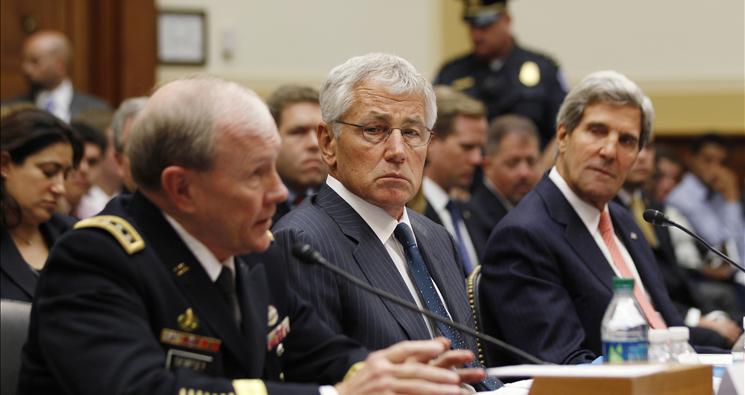Let’s Not Repeat Key Iraq Mistakes
American leaders always seem to underestimate the savagery and ferocity of our Middle Eastern enemies. One of the worst (and bloodiest) mistakes in the Iraq War was not understanding the difficulty of replacing a brutal tyrant with a functioning, reasonably humane government. Even with more than 120,000 troops on the ground, we spent years struggling to contain not just an anti-American insurgency but also a sectarian conflict so vicious that it was tough to determine who was more bloody-minded: al-Qaeda or its Shiite militia opponents.
The result was exceedingly grim. By 2007, Diyala Province (my unit’s area of operations) was so dominated by al-Qaeda they named it the “Islamic Caliphate of Iraq,” and the region was arguably worse off than it had been under Saddam. It took almost a year of hard fighting to largely (though not entirely) purge al-Qaeda from the province. In fact, had we left Iraq when many on the left (including President Obama) urged us to, we’d likely face a strategic nightmare with al-Qaeda holding vast sections of strategically vital territory, possessing large stocks of conventional military weaponry, and with its main Shiite opposition so radical as to be essentially an eastern adjunct of Hezbollah. As flawed as Iraq’s current regime is, it’s far preferable to both Saddam Hussein’s or the radical alternatives we fought in the Surge.
It would be prudent for us to remember that the alternatives to brutal dictatorship are not always what we’d like — especially as jihadists gain strength in the Syrian opposition, including some of the same vicious jihadists we fought in Iraq. Air strikes may alter the balance of power in the Syrian civil war, but they won’t endear us to al-Qaeda or any other Sunni radicals fighting Assad. I fully recognize that I’m not privy to classified information regarding the nature and makeup of the Syrian rebels, but history demonstrates that we consistently approach the Middle East with rose-colored glasses, and a central question Congress should be asking is this: If we “degrade” Assad who do we empower?
If it’s al-Qaeda or any of its allies, then it’s not “isolationist” to oppose military action, it’s common sense.
